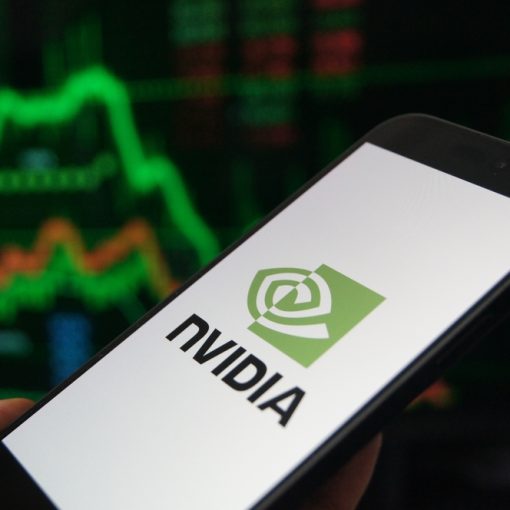By: Barry Randall, Crabtree Asset Management
At just after 7 in the morning on May 3rd I was scrolling through the news and happened upon the headline: “Ruth’s Hospitality Group: Darden Restaurants (DRI) and RUTH announce merger agreement whereby DRI will purchase RUTH shares at $21.50/share.” Since we own Ruth’s Hospitality (“Ruth”) in our Small Cap Growth model portfolio and it had closed at $16.03 the night before, this was unequivocally good news.
Yay.
Now what?
As I type this, it has been a week since the M&A announcement and…we still own our Ruth position. It’s trading at $21.38. What are we waiting for, you might ask? “Sell!”
There are three paths here for Ruth’s stock to take:
- Its share price stays roughly where it is, and rises slowly to $21.50 by the time of closing, or
- Another suitor (or two) could emerge and make a higher offer, or
- The deal can fall apart and Ruth’s price would drop, probably all the way back to the pre-offer price.
And there are two paths for Ruth shareholders: Sell now or hold on until the deal closes…or other suitors emerge.
Our firm uses a formal process to determine what to do in these situations. This basically involves answering several “either-or” questions. Let’s go through the process together with Ruth.
Strategic or Financial Suitor? Strategic. Darden is also in the restaurant business and the goals here are synergies with its existing chains like Olive Garden. As opposed to a financial buyer like a private equity firm. Experience tells us that with strategic suitors, additional offers -while rare- are more likely.
Hostile or Friendly? Friendly. So friendly in fact, that both Darden and Ruth’s boards of directors had already voted unanimously to approve the transaction before the deal was announced. Ruth’s board would not have done that if they felt additional offers were likely.
Cash or Stock? Cash. Darden is well capitalized with enough cash and borrowing power to easily pay. As opposed to issuing a lot of potentially dilutive shares. M&A offers that are all- or mostly-stock carry the risk that the market will punish the share price of the suitor for what it considers an ill-considered acquisition. Experience tells us that cash deals are more likely to be consummated.
Lowball Offer or Premium Price? Somewhere in the middle. We’ll skip our more comprehensive analysis here, but still provide a little context. At $21.38, Ruth is trading at an Enterprise Value-to-EBITDA multiple of around 13. This is a discount to its publicly-traded competitors; we chose a set of nine (including Darden) whose median EV:EBITDA was 17.3. So we think Darden’s offer is fair, given Ruth’s modest revenue growth and greater exposure to pandemic risks. But it’s low enough to leave room for a suitor willing to pay more.
Telegraphed or a Surprise? Surprise. A look at a chart of RUTH’s share price for the month prior to Darden’s offer shows no hint that an offer was coming. It is often true that investment bankers advising a target firm will discreetly leak news of the suitor’s interest to a) drive the target’s price higher before an official offer is made and b) flush out any interest from other potential suitors, allowing them to assure their client firm that no better offer is left “on the table.” Offers that are telegraphed in this way are less likely to result in additional, superior offers simply because everybody already had time to act on their interest. Surprise offers are more likely to beget additional offers, especially when the offered price is not already at a premium.
“Merger of Equals” or Clear Survivor? Clear survivor. Darden’s market capitalization is over $18 billion; even at its new, elevated share price, Ruth’s is less than $700 million. Darden’s current CEO, Rick Cardenas will continue in that role. The hierarchy here is not in dispute. Whereas a “merger of equals” has become a kind of punchline for deals that inevitably fail to live up to the parties’ expectations, straightforward purchase offers like Darden’s are much more likely to go through. This favors holding on to our shares until closure.
Quick Closing or Long, Drawn Out? Quick. According to the news release, the “[t]transaction is expected to be completed in June [2023], subject to satisfaction of customary closing conditions.” This timetable is practically instantaneous and assumes that approvals from relevant agencies will be expedited or simply unnecessary. Lengthy, multi-quarter closing schedules increase the chance that something will go wrong yet rarely allow for competing offers to emerge. Quick closure favors holding.
***
So looking at the Darden – Ruth deal through this prism, it makes sense for us to hold on to our shares. Ruth has a board-approved, all-cash offer at a reasonable valuation from a well-capitalized, strategic buyer who hopes to close the deal in less than two months. We believe the deal is likely to go through…but the low price leaves room for a higher offer.
There are no guarantees in money management and we could get this all wrong. Along with the risk that something will cause Darden to withdraw its offer, another risk here is the opportunity cost of not selling our Ruth shares and reinvesting the proceeds in a new position that might outperform the exceedingly modest arbitrage return until Darden closes its proposed deal. But we think “we can handle Ruth.”
PHOTO CREDIT: https://www.shutterstock.com/g/bnenin
Via SHUTTERSTOCK
DISCLOSURE
Investing involves risk, including the possible loss of principal. Diversification does not ensure a profit nor guarantee against a loss.
This material represents an assessment of the market environment at a specific point in time and is not intended to be a forecast of future events, or a guarantee of future results. This information is not intended to be individual or personalized investment or tax advice and should not be used for trading purposes. Please consult a financial advisor or tax professional for more information regarding your investment and/or tax situation.




